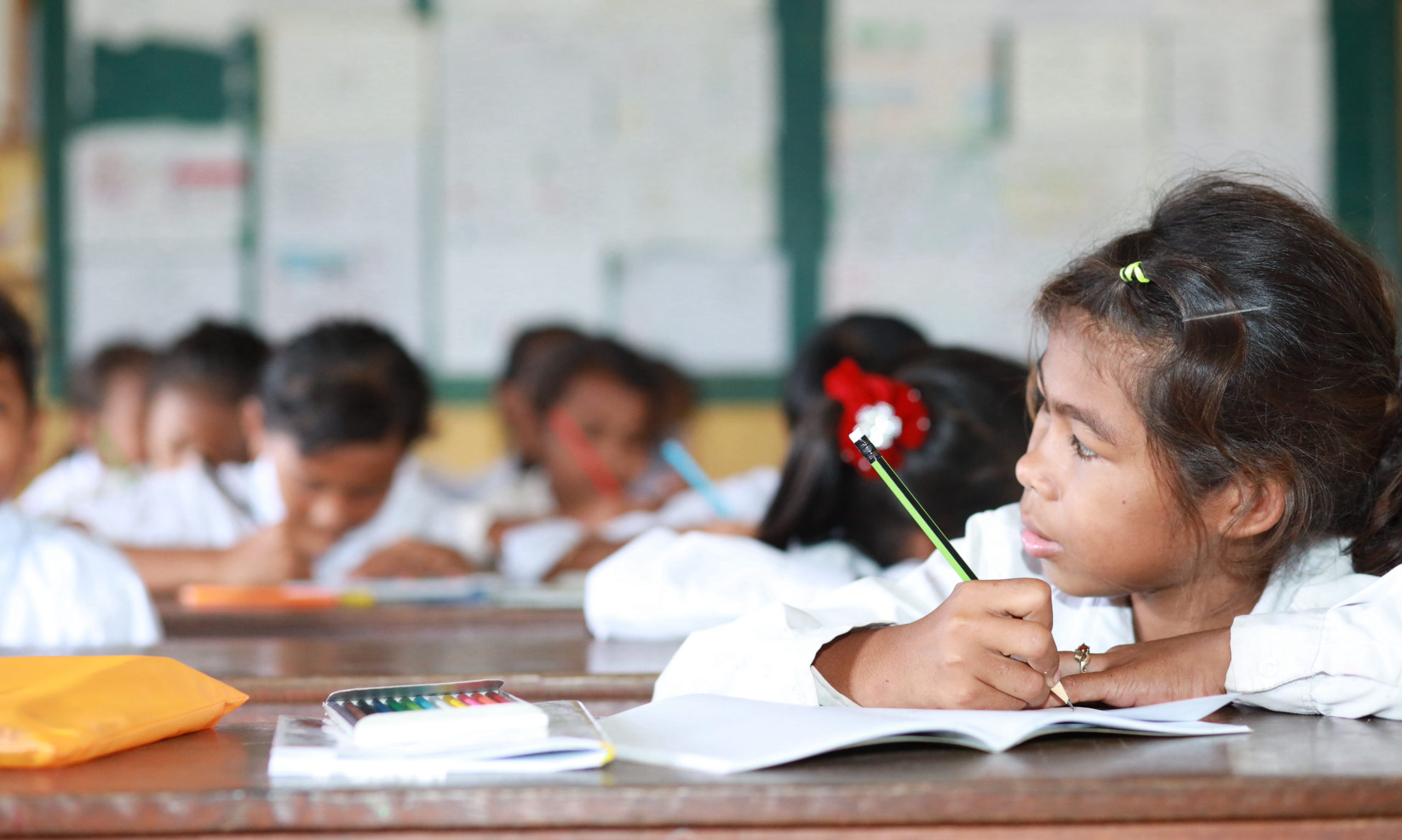
PLF’s presence at Chey is in a rather unique category of its own, being neither fully rural nor urban, and the project there has taken interesting detours from our ‘regular’ programming.
It’s time to shine a light on Chey, and the pathways and strategic development points it has created.
Chey Primary was established by its legendary former principal, who in the early ‘80s returned on foot from the refugee camps along the Thai border and set about rebuilding basic classes. We began working from within Chey Primary in 2007, in the same way that we work with our rural schools: supporting students in need with supplies, uniforms and bicycles at the beginning of each school year; creating programming to bolster the education experience and assisting with infrastructure where needed, all the while building pathways to secondary school.
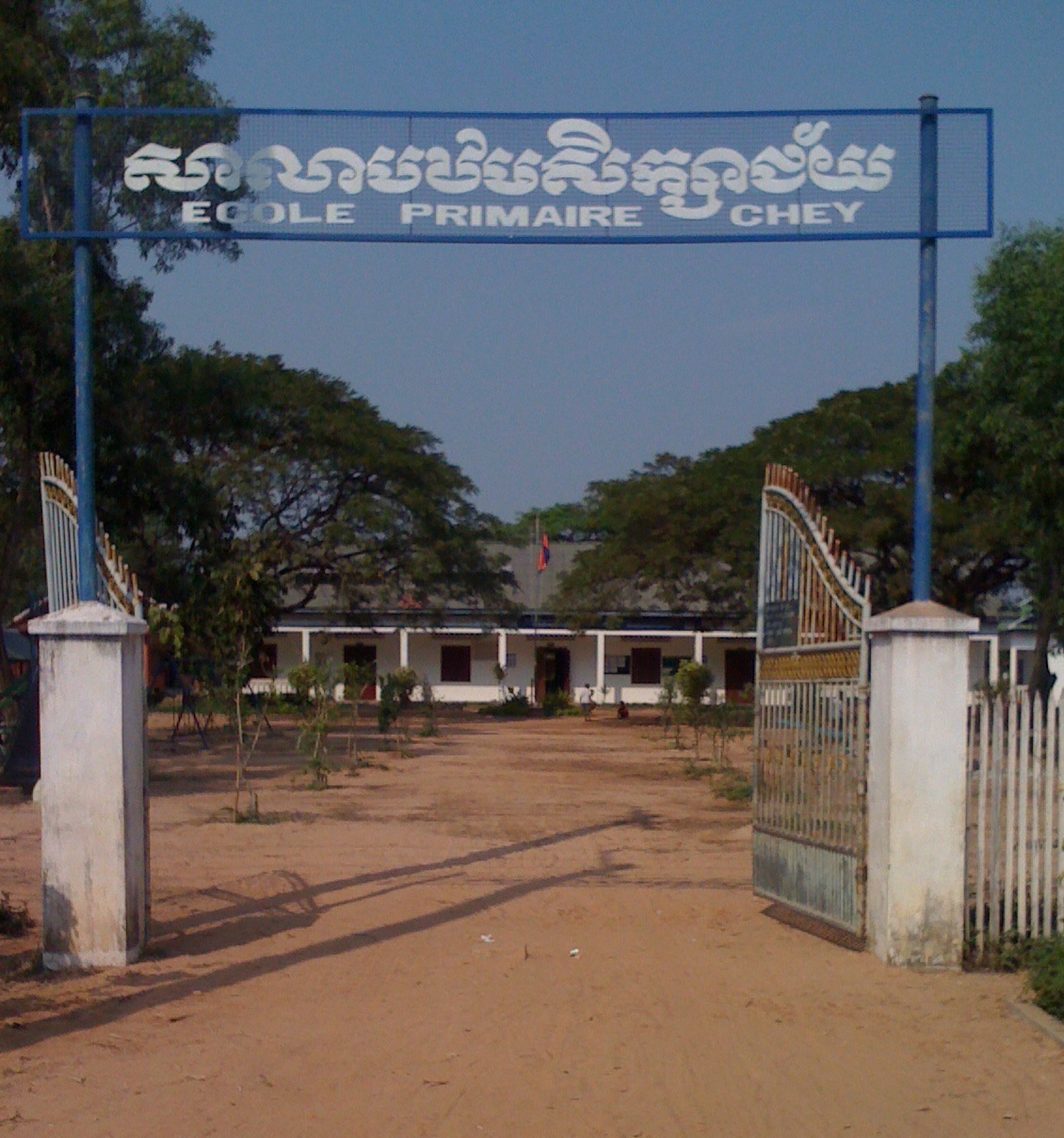
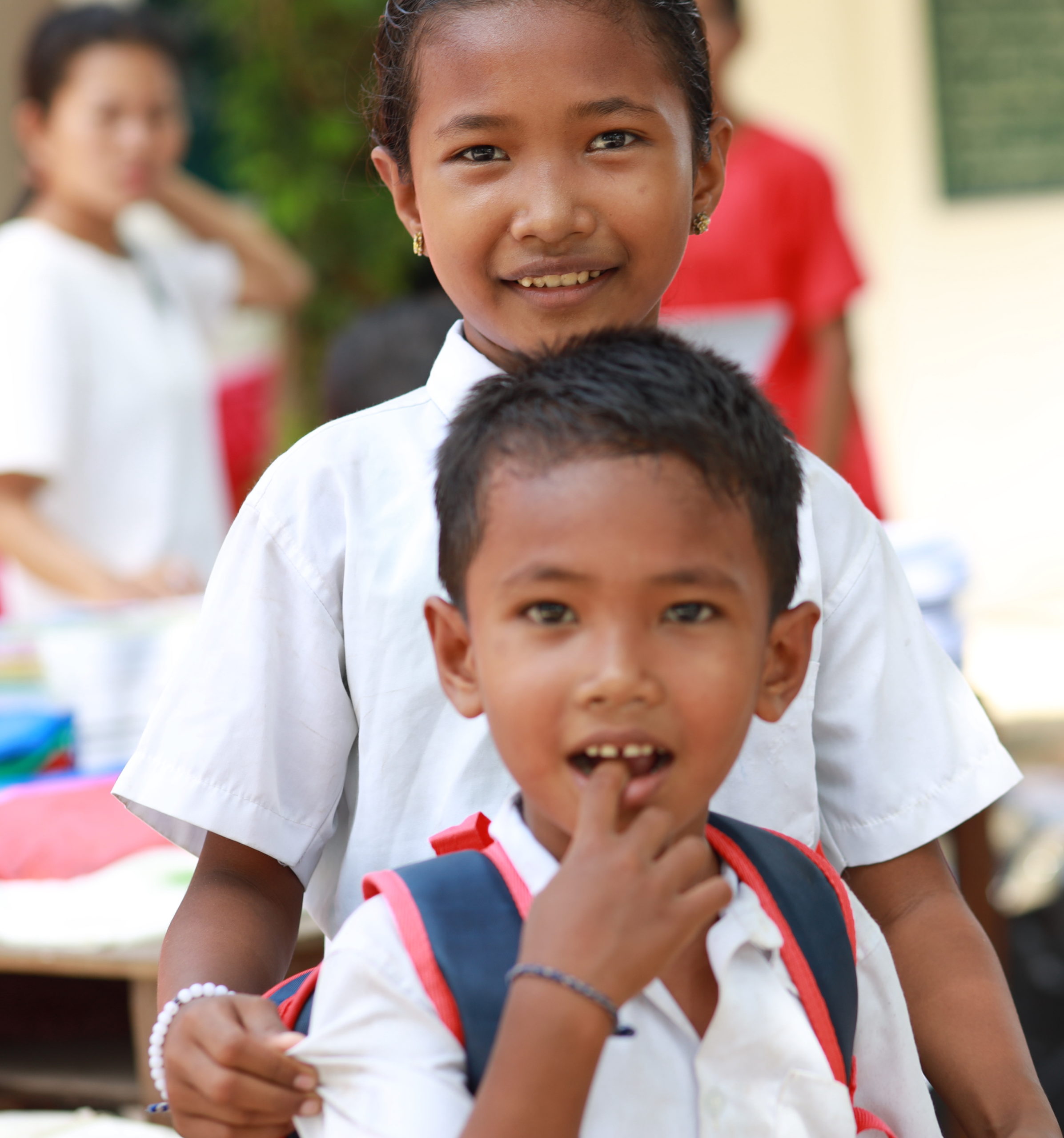
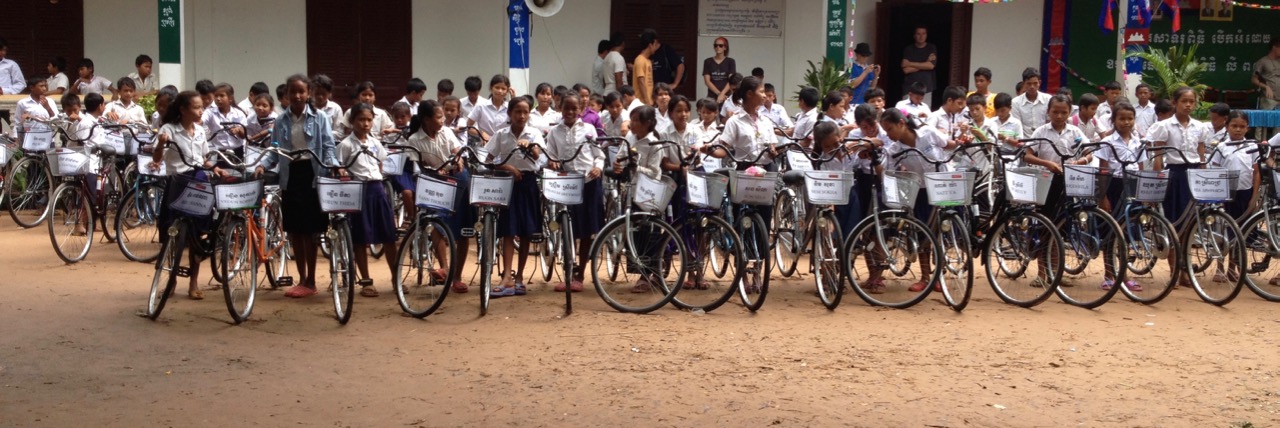
There are several factors that make Chey Primary a success, leading to a kind of ‘secret sauce’ recipe:
The school is EXCEPTIONAL
The current principal, who has admirably filled her predecessor’s extremely large shoes, is diligent and well-respected in the community. The teachers are older, experienced, and all from Chey village – meaning that they personally know the students and their families. They are amongst some of our best teaching staff, sharing best practices and resources with teachers at our other projects.
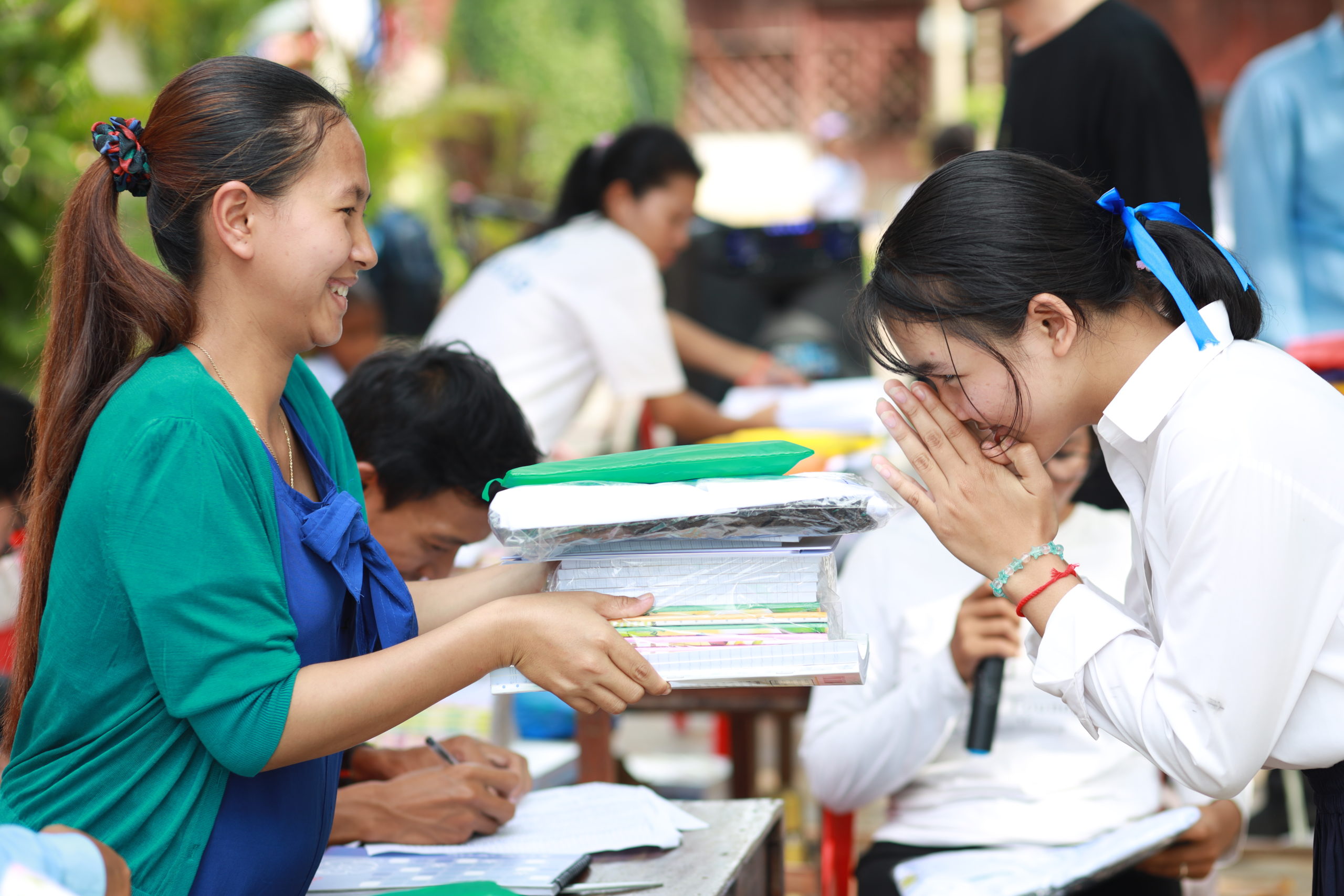
The community is SOLID
Chey is roughly equidistant between Siem Reap and the small city of Pouk, and this proximity to urban hubs means that parents understand the benefits of education and see the employment opportunities it leads to. They actively encourage their kids to go to school. Additionally, the farming community there and around Pouk shifted up a gear around 10 years ago with improved irrigation from the nearby Baray (reservoir), meaning bi-annual rice harvests and a stable income. People who owned larger swaths of land suddenly became upwardly mobile farmers who could afford to prioritize their children’s education, rather than needing them to work in the fields. They show up for their kids, encourage participation in activities, and attend school events.
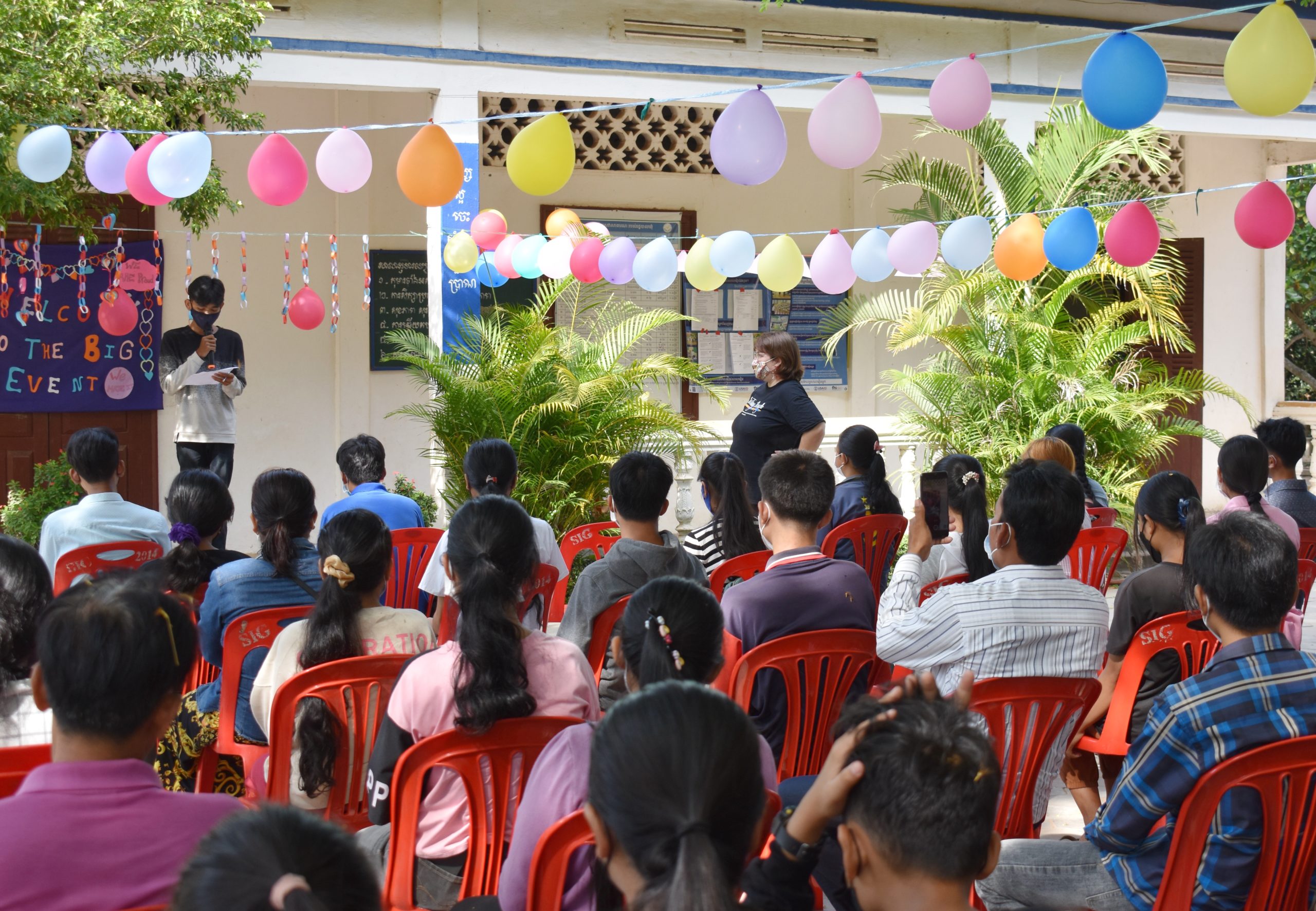
The students are ENGAGED
The students are consistently more successful than our other rural cohorts elsewhere. They engage at a high level in everything PLF puts forth: English, Tech, Workshops, eLearning, even at Chess Club there is always a high % of the total participating in activities that bolster what they learn at public school.
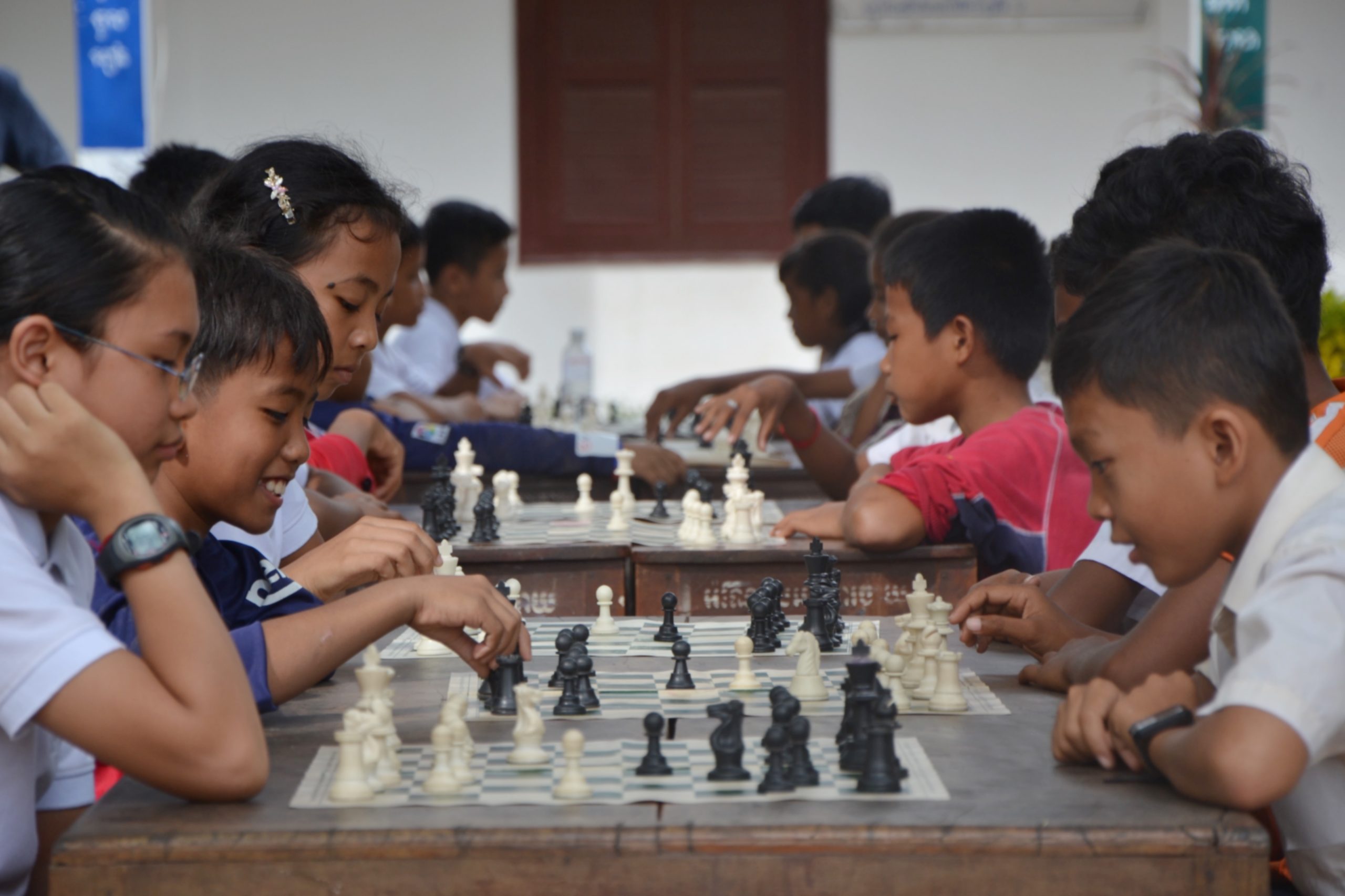
The data bears this out. When examining high school completion rates, Chey is graduating at about twice the rate of the national average:
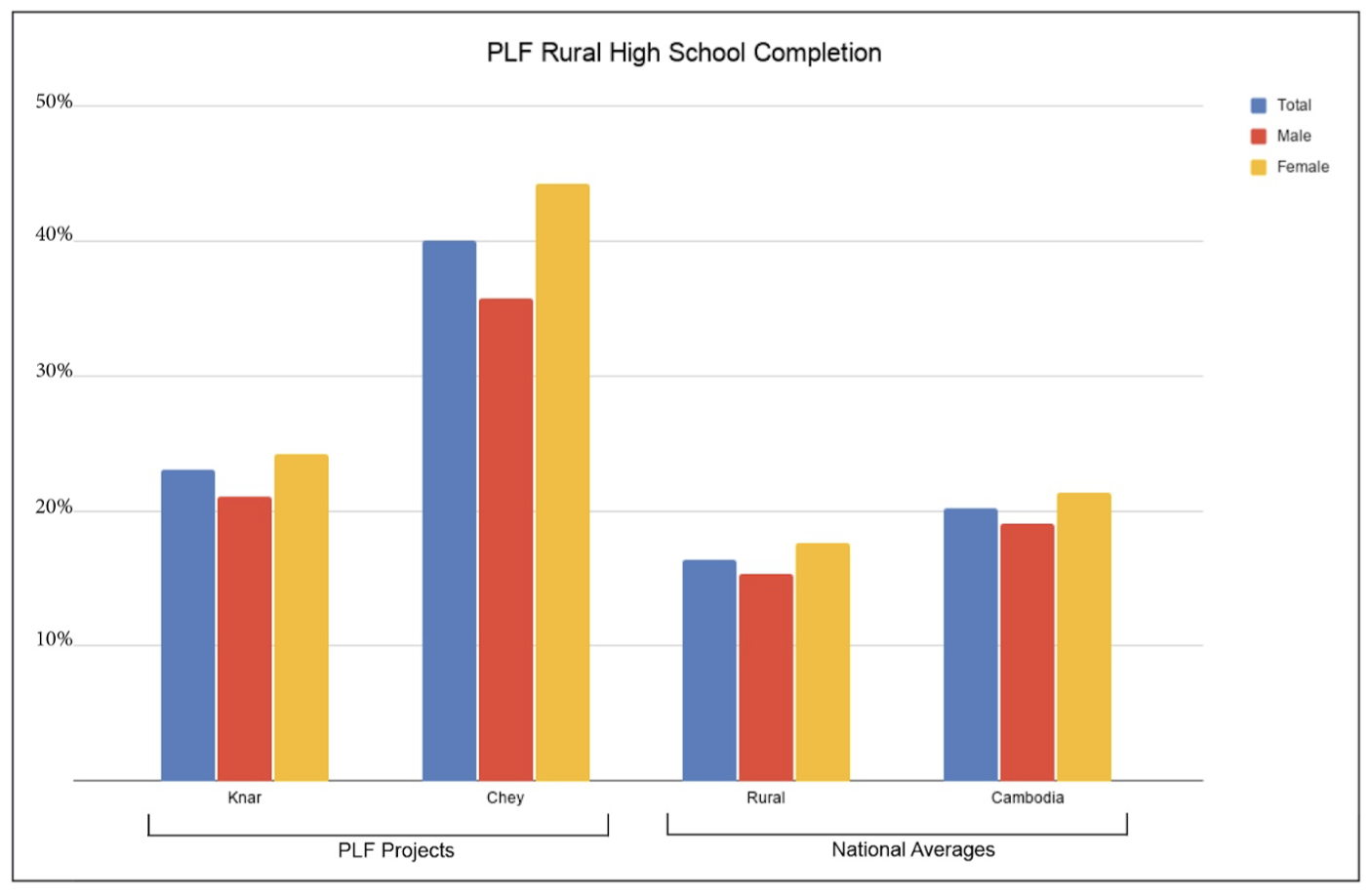
All these factors brought about significant changes. Since the community was making its own way forward and motivated enough to keep their kids in school, it was the first Primary school from which we could begin to withdraw many facets of support and, over time, allocate a larger share of resources on steering students through to the higher grades.
Currently, our work at Chey covers just over 400 PLF Primary students, and 375 high school students who we follow on their journey. Kids leaving Chey Primary largely track either to Pouk High school or Samdach Oev High School in Siem Reap city – both of which are very good schools.
The high school students coming from Chey are a demanding cohort; they speak freely and clearly about what they need and play a large part in informing our strategy. Therefore, the vast majority of pilots for Secondary School students have been done at Chey, especially in Tech and English. These are always strongly embraced, well piloted, and successful, making them easy to roll out at other locations.
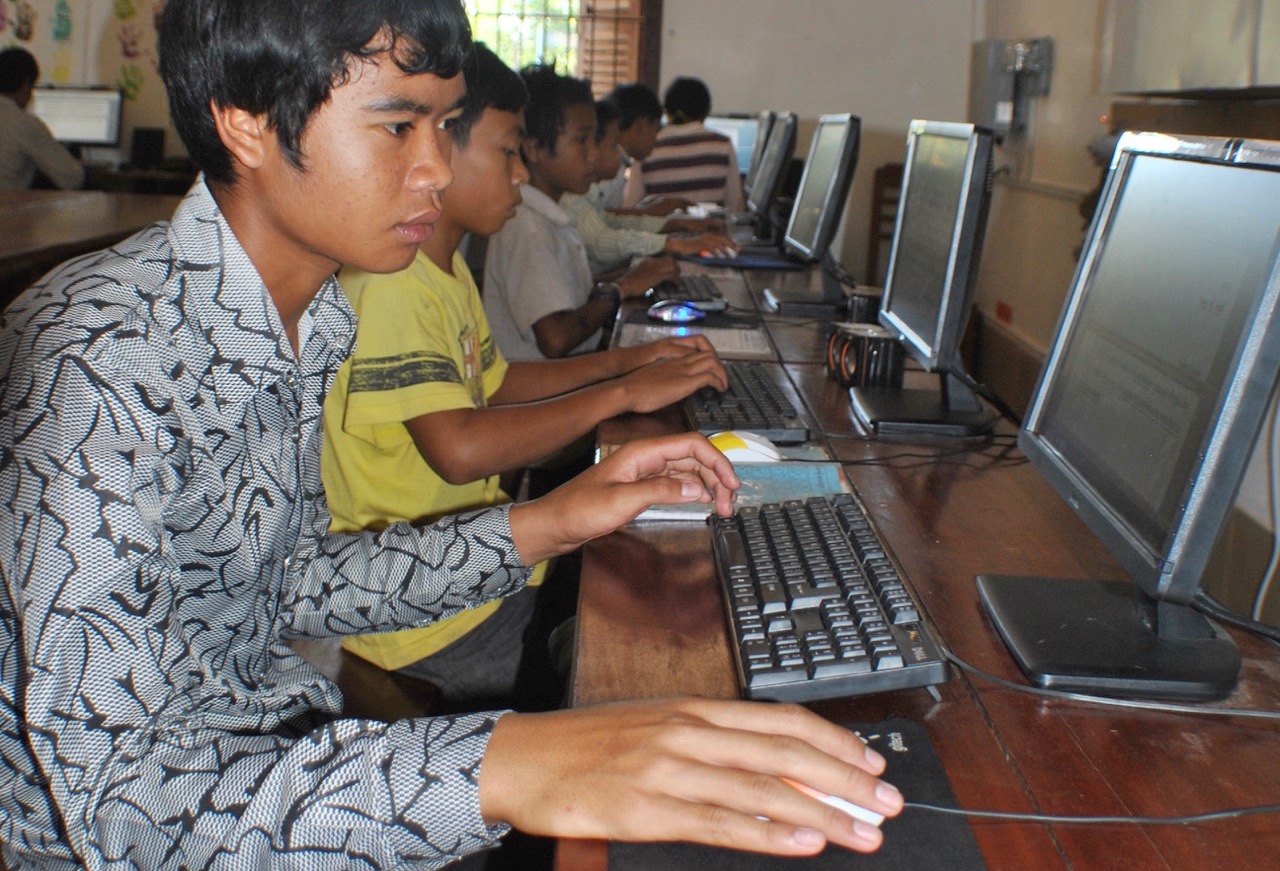
However, in following the older students through to high school, we have had to confront and bridge the gaps that middle school throws up. While there are excellent high schools to aim for, middle school opportunities are lacking in this catchment area, causing many drop outs in Grades 7-9.
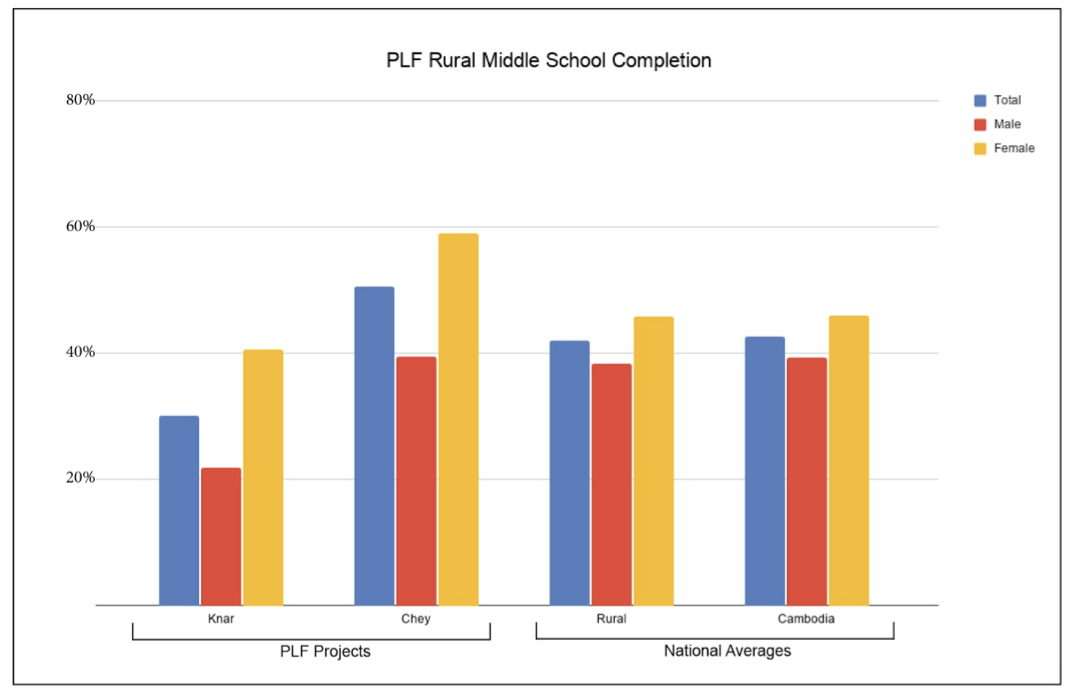
Here we see our middle school completion rates at Chey narrowing almost down to the national average, which is more or less on a par for boys and only slightly higher for girls.
We are constantly looking for ways to illuminate the path from primary to high school, examining the needs of middle schoolers – especially boys. We regularly meet with students in middle schools in the Chey catchment area and listen intently about how we can support them.
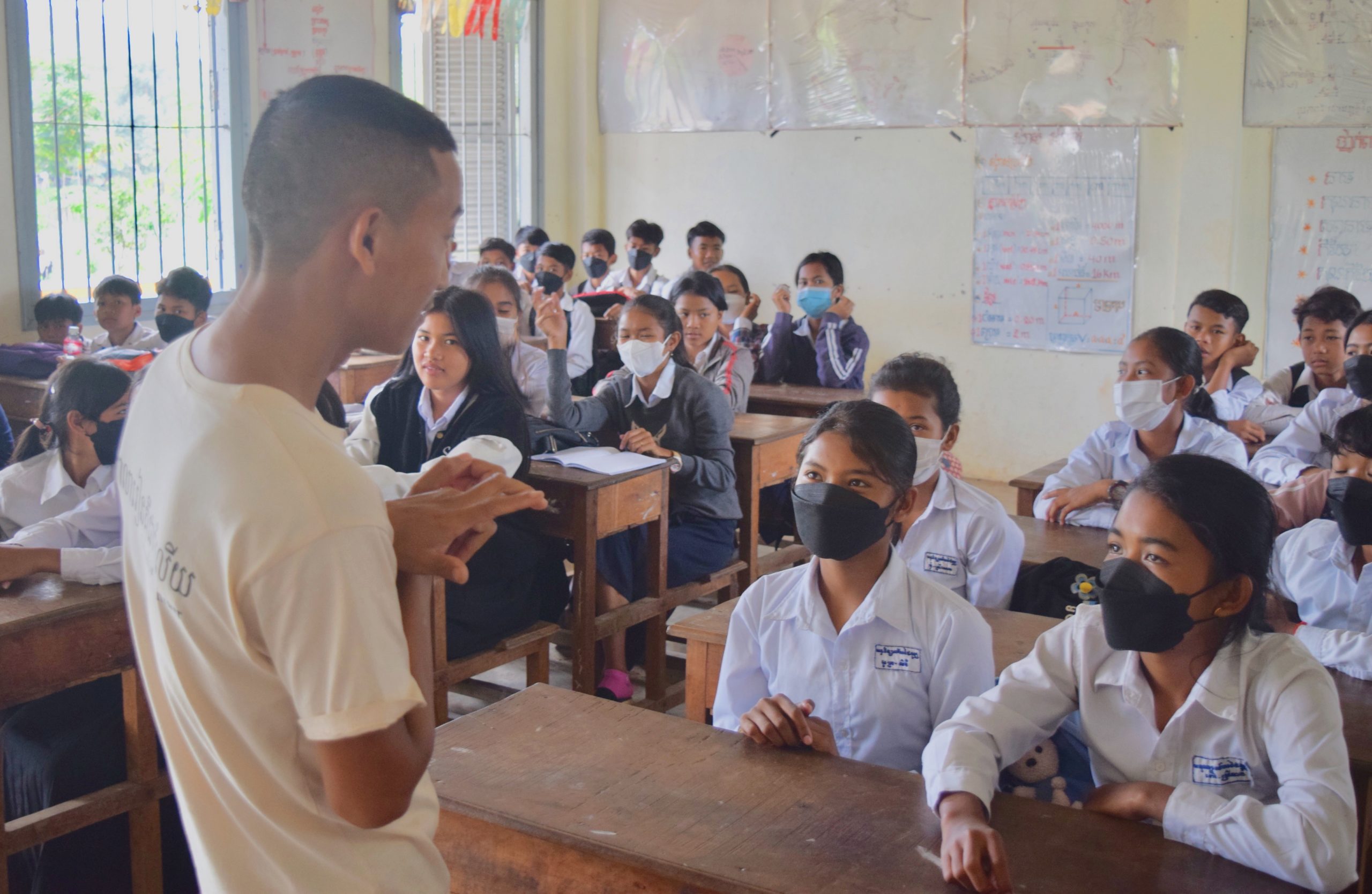
PLF meeting with Grade 8 students at Thaisho Secondary School in the Chey catchment area
This in turn informs our strategic development, switching out or expanding classes from our existing offering to create a more robust middle school program.
In response, this year we are adjusting our support at Chey.
We will continue to offer our essential English classes from Grade 5-12; Tech from Grade 10; and our dedicated and hugely popular chess club. Until this year, we also included a robotic lego class. But as part of our strategy development, we are sacrificing this class in recognition of the shift needed to more roundly equip and prepare students – especially boys – for middle school.
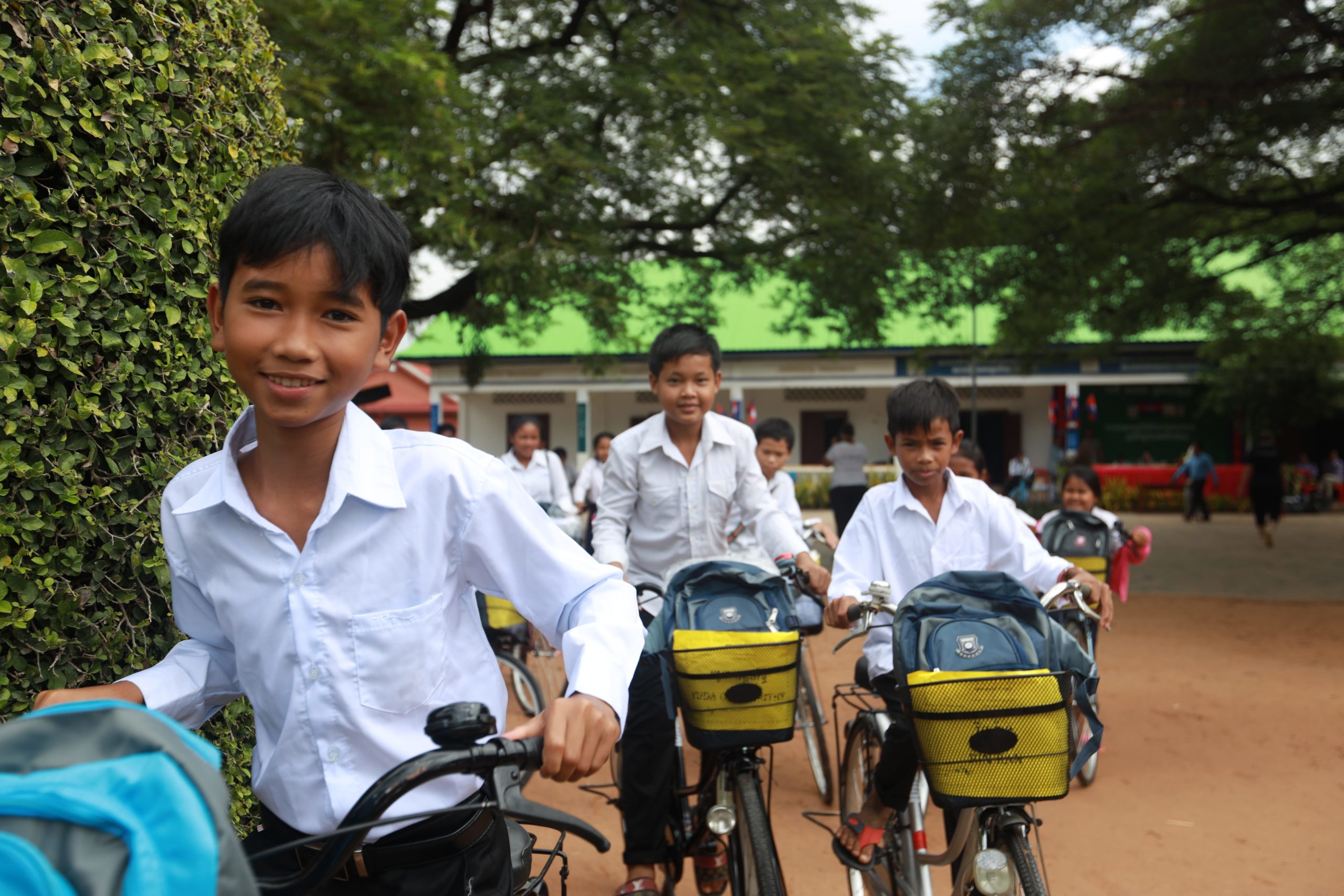
Hop on over to the next instalment to find out what will be taking its place!
Want to walk alongside our students in their journeys but not sure how? Here are some of the really useful ways you can support our mission!
For as little as $10 a month, you could contribute to the ongoing education of our students. $120 goes a long way in Cambodia: that’s 5 village children on the road to education, with access to school and clean drinking water for half a year. Or a million other things, all of which coalesce into the tools needed for life to change for the better!
Follow our Instagram or Facebook accounts. Like, comment on or share our posts - Do it. It’s free. And it’s a huge help for us!
Have some questions?
Email us for a chat at [email protected]

Recent Comments